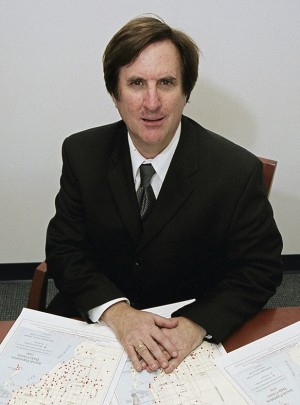This interview was recently published at Israel National News, and is republished here with the author’s consent.
“The most important Jewish use of the Internet is in education. This does not only follow trends in secular education, but in some cases Jewish institutions have even led the way. Twenty-five percent of American Jewish day schools offer some form of online learning, with a mix of secular and Judaic topics. The Union for Reform Judaism (URJ) has developed an online platform for its entire network of congregational Hebrew schools. It allows students to communicate virtually with each other and their teachers, work at their own pace in the classroom, and interact remotely with teachers outside of class.
JEWISH POPULATION USES THE INTERNET MORE THAN OTHER AMERICANS
Manfred Gerstenfeld interviews Ira Sheskin
“American Jews use the internet more than other Americans. Already in 2000, the National Jewish Population Survey found that 40 percent of Jewish adults utilized the Internet for Jewish-related information in the past year. This was all the more remarkable as the internet only entered the public domain in a significant way in the mid-1990’s.
“Among the reasons for the relatively high Jewish use of the internet is that on the average, Jewish households have an annual income about 14% higher than that of other American households. Perhaps even more important is that 60% of Jewish adults aged 25 and over have a four-year college degree or higher, compared to 28% in other American households.”
Ira Sheskin is Professor of Geography and Regional Studies and Director of the Jewish Demography Project of the Sue and Leonard Miller Center for Contemporary Judaic Studies at the University of Miami. Together with Rabbi Micah Liben, he has published a large essay on American Jewish use of the Internet for a forthcoming book.[1]
Sheskin summarizes findings resulting from various demographic studies: “A sizable percentage of American Jews use the internet for information about Jewish history, holidays, religious matters as well as Israel. Another typical use is to connect to their local Jewish community for instance, for the time and place of specific events. Internet usage of Jewish sites is higher among Jews who are more involved in traditional Jewish life. This includes members of a synagogue, as well as Jews who visit Israel or donate to a Jewish charity.
“Jewish organizations have a communal interest in educating youth and encouraging marriage within the community. Thus, the Jewish community is particularly interested in reaching households with children and singles. These groups have an above average internet use for Jewish-related information. Studies also found that significant percentages of singles have used a Jewish Internet dating service.
“From a Jewish communal perspective, investing in websites is probably the best means of communication with these two household types. This is the more so as studies show that relatively few young people read a local Jewish newspaper on a regular basis.
“Various Jewish websites aim specifically toward outreach and ‘engagement.’ Not all of these focus solely on study or religious matters. For example, the Jewish Rock Radio (JRR) launched a website in 2009 with the mission of ‘strengthening Jewish identity and connection in Jewish youth and young adults, by providing a mass communication channel utilizing the power of music to inspire and educate.’
“Among the mainstream Jewish community, using mobile applications and other internet tools for a range of Jewish practices is common. For some Jews, religious observance has increased as a result of internet use. One person answered a survey by saying that his recent growth in Judaism derived from getting an iPod Touch.
“The abundance of mobile applications with Jewish content is evident on Jewish iPhone Community, an online magazine. This site lists hundreds of available applications with Jewish content. They can be divided loosely into three categories—resources, games, and novelties. Some applications which are intended more for fun than for actual ritual use still have great significance. They generate excitement and even pride among Jewish users, and serve as entry points for continued Jewish engagement.
“The most important Jewish use of the Internet is in education. This does not only follow trends in secular education, but in some cases Jewish institutions have even led the way. Twenty-five percent of American Jewish day schools offer some form of online learning, with a mix of secular and Judaic topics. The Union for Reform Judaism (URJ) has developed an online platform for its entire network of congregational Hebrew schools. It allows students to communicate virtually with each other and their teachers, work at their own pace in the classroom, and interact remotely with teachers outside of class.
“Educational software programs enable students to break down Talmudic texts. Some have developed web-based versions for students to use on iPads or other tablets. In higher education, online Jewish learning is commonplace. Through the Lookstein Center in Israel, numerous courses for credit are offered yearly via the Internet in a distance learning format. Thousands of Israeli educators and college students have completed online courses through this center. On the web itself, many diverse educational resources are available.
“There are a multitude of other Jewish applications of the Internet, one of which can be used for research on the Jewish community itself. To sum it up: the number of Jewish resources on the internet is virtually limitless.”
[1] Stanley D. Brunn (ed) The Changing World Religion Map: Sacred Places, Identities, Practices and Politics. (Dordrecht: Springer, forthcoming 2013).

